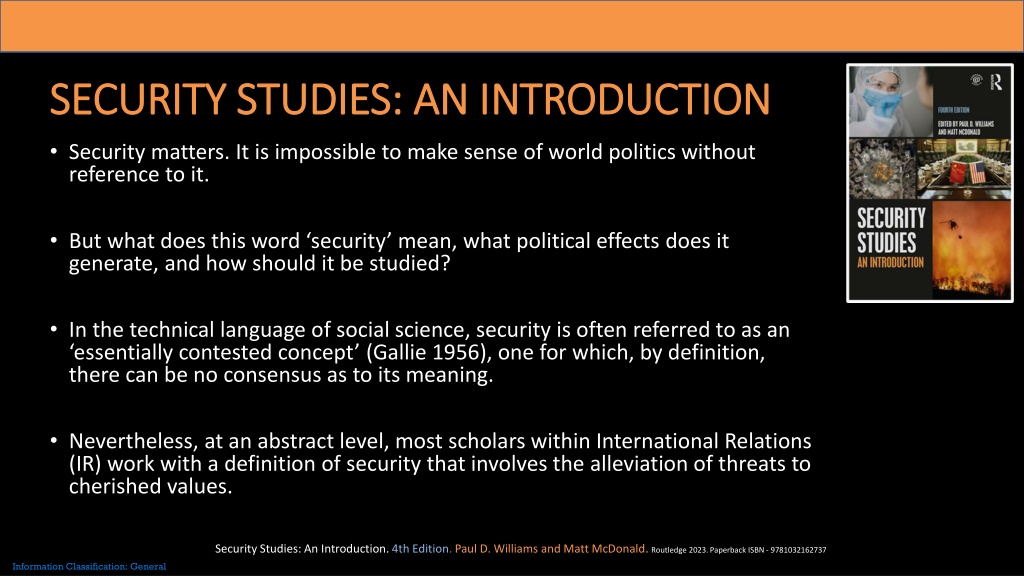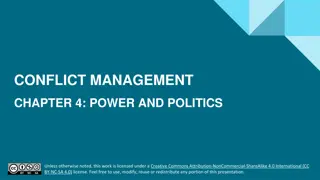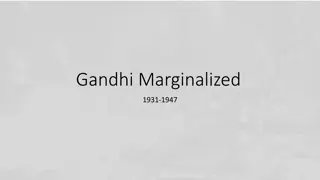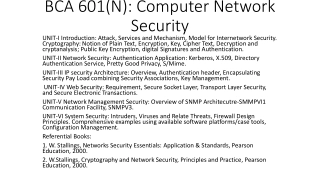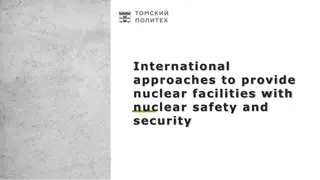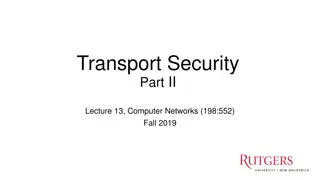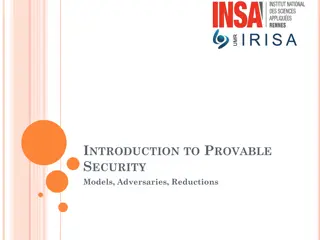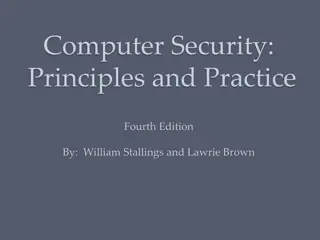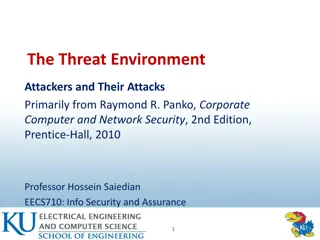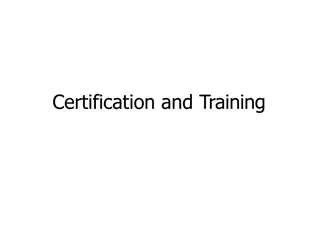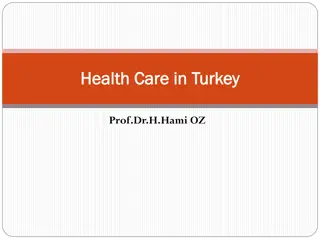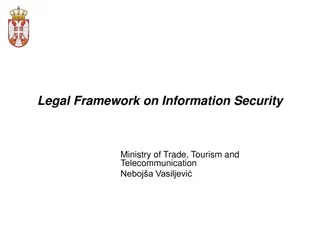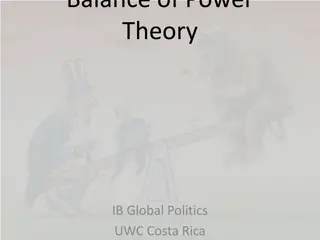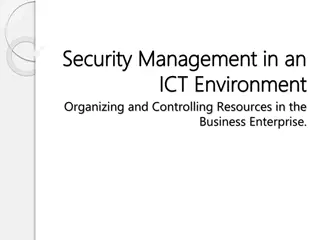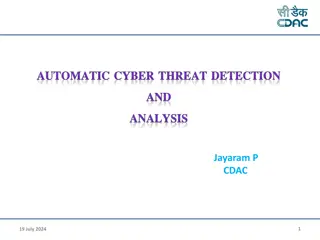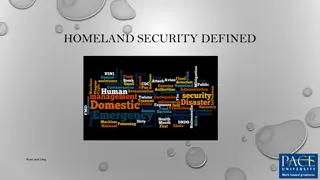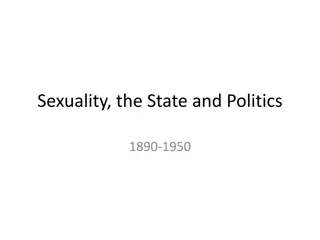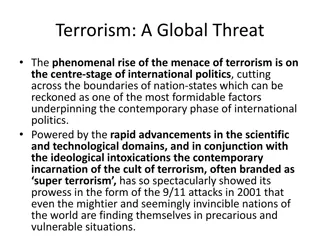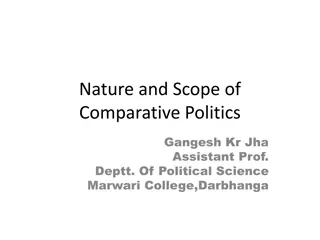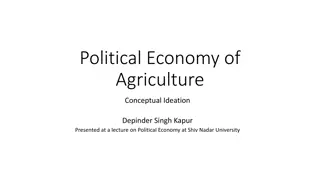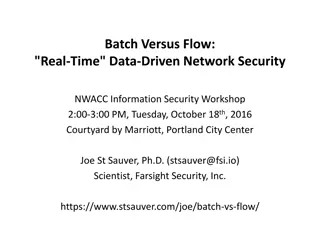Understanding Security in World Politics
Security studies delve into the intricate processes of defining and addressing security threats in global politics. It explores the contested nature of security definitions, emphasizes the political significance of security, and challenges the conventional boundaries of International Relations. The field underscores the complex interplay of actors and issues shaping contemporary security dynamics, advocating for interdisciplinary insights in understanding and addressing security challenges.
Uploaded on Sep 19, 2024 | 0 Views
Download Presentation

Please find below an Image/Link to download the presentation.
The content on the website is provided AS IS for your information and personal use only. It may not be sold, licensed, or shared on other websites without obtaining consent from the author. Download presentation by click this link. If you encounter any issues during the download, it is possible that the publisher has removed the file from their server.
E N D
Presentation Transcript
SECURITY STUDIES: AN INTRODUCTION SECURITY STUDIES: AN INTRODUCTION Security matters. It is impossible to make sense of world politics without reference to it. But what does this word security mean, what political effects does it generate, and how should it be studied? In the technical language of social science, security is often referred to as an essentially contested concept (Gallie 1956), one for which, by definition, there can be no consensus as to its meaning. Nevertheless, at an abstract level, most scholars within International Relations (IR) work with a definition of security that involves the alleviation of threats to cherished values. Security Studies: An Introduction. 4th Edition. Paul D. Williams and Matt McDonald. Routledge 2023. Paperback ISBN - 9781032162737 Information Classification: General
THE IMPORTANCE OF SECURITY THE IMPORTANCE OF SECURITY Security is unavoidably political; it plays a vital role in deciding who gets what, when, and how in world politics (Lasswell 1936). Security studies is stimulated by the impulse to achieve security for real people in real places (see Booth 2007). The political importance of security is reflected in the fact that labelling an issue a security threat usually leads to the allocation of more resources in response. Security can therefore be thought of as a powerful political tool in claiming attention for priority items in the competition for government attention (Buzan 1991: 370). Consequently, it matters a great deal who gets to decide what security means, what issues make it onto security agendas, how those issues should be dealt with, and, crucially, what happens when different visions of security collide. Security Studies: An Introduction. 4th Edition. Paul D. Williams and Matt McDonald. Routledge 2023. Paperback ISBN - 9781032162737 Information Classification: General
SECURITY STUDIES ISNT JUST A SUBFIELD OF IR SECURITY STUDIES ISN T JUST A SUBFIELD OF IR There are several problems with thinking of security studies as a subfield of IR. Studying the traditional cannons of IR may not be the best preparation for a student whose primary interest is understanding security dynamics in contemporary world politics. Many of today s security problems are so complex and interdependent that they require analysis and solutions that IR cannot provide alone. Students should therefore look for insights across a variety of disciplines, and not only those within the humanities or social sciences. IR remains an enterprise dominated by Anglo-American men where the orthodoxy remains wedded to the tradition of political realism; written largely by Westerners and for Western governments. Questions, issues, and ways of thinking traditionally considered most important within the field were neither neutral nor natural but were always for someone and for some purpose (Cox 1981). Inter-state relations are just one, albeit an important, aspect of the security dynamics that characterize contemporary world politics. States are not the only important actors and they are certainly not the only important referent objects for security. Security Studies: An Introduction. 4th Edition. Paul D. Williams and Matt McDonald. Routledge 2023. Paperback ISBN - 9781032162737 Information Classification: General
DEFINING THE FIELD OF SECURITY STUDIES DEFINING THE FIELD OF SECURITY STUDIES In this textbook, security studies is understood as an area of inquiry loosely focused around a set of basic but fundamental questions. The answers to these questions have changed, and will continue to change, over time. One of the few intellectual histories of how international security has been studied argued that the interplay of five forces is particularly central to understanding how the field has evolved: great power politics, technology, key events, the internal dynamics of academic debates, and institutionalization (the process through which networks form and resources allocated) (Buzan and Hansen 2009). These five forces roughly equate to concerns about material power, knowledge, history, prevailing social constructions, and wealth and organizational dynamics, respectively. Security Studies: An Introduction. 4th Edition. Paul D. Williams and Matt McDonald. Routledge 2023. Paperback ISBN - 9781032162737 Information Classification: General
Q1: WHAT IS SECURITY? Q1: WHAT IS SECURITY? This raises issues about the philosophy of knowledge, especially those concerning epistemology (how do we know things?), ontology (what phenomena do we think make up the social world?), and method (how we should study the social world?). If security is an essentially contested concept then, by definition, such debates cannot be definitively resolved in the abstract. Instead, some positions will become dominant and be enforced because of the application of power. Nevertheless, security is most commonly associated with the alleviation of threats to cherished values; especially those which, left unchecked, threaten the survival of a particular referent object in the near future. Security Studies: An Introduction. 4th Edition. Paul D. Williams and Matt McDonald. Routledge 2023. Paperback ISBN - 9781032162737 Information Classification: General
Q2: WHOSE SECURITY ARE WE TALKING ABOUT? Q2: WHOSE SECURITY ARE WE TALKING ABOUT? Asking whose security we are talking about is the next important and unavoidable step in the analytical process. There are many plausible answers to the question whose security should we be talking about? Without a referent object there can be no threats and no discussion of security because the concept is meaningless without something to secure. The most frequently debated answers about the principal referent object are: States and national security Individual humans Societies Ecosystems We need to be clear about the referent objects of our analysis. In the long sweep of human history, the central focus of security has been people (Rothschild 1995). Security Studies: An Introduction. 4th Edition. Paul D. Williams and Matt McDonald. Routledge 2023. Paperback ISBN - 9781032162737 Information Classification: General
Q3: WHAT COUNTS AS A SECURITY ISSUE? Q3: WHAT COUNTS AS A SECURITY ISSUE? Deciding what counts as a security issue for a particular referent involves analyzing the processes through which sources of insecurity are identified and threat agendas are constructed. In other words, who decides which of a referent object s cherished values are threatened, and by what or whom? Although we all construct our own, personal threat agendas, when powerful political actors construct threat agendas these will have important impacts on international security dynamics. Some analysts prefer a narrower security studies agenda; focused on matters related to armed conflict and the threat and use of military force (e.g., Walt 1991). Others, argue for a much broader security agenda; focused on the threats and risks that prevent people from pursuing their cherished values (e.g. lack of food, water, shelter, and healthcare). Security Studies: An Introduction. 4th Edition. Paul D. Williams and Matt McDonald. Routledge 2023. Paperback ISBN - 9781032162737 Information Classification: General
Q4: HOW CAN SECURITY BE ACHIEVED? Q4: HOW CAN SECURITY BE ACHIEVED? Asking how security might be achieved implies not only that we know what security means and what it looks like in different parts of the world, but also that there are particular actors which, through their conscious efforts, can shape the future in desired ways. How we think about security and what we think a secure environment would entail will shape the security policies we advocate. Most analysts reject the idea of total or absolute security: all human life involves insecurities and risks of one sort or another. The practical issue is thus what level of threat are actors willing to tolerate before taking remedial action? In contemporary world politics, the agents of security can come in many shapes and sizes. Beyond states and international organizations, important examples might include social movements, humanitarian and development groups, private security contractors, insurgents, criminal organizations, and corporations. Security Studies: An Introduction. 4th Edition. Paul D. Williams and Matt McDonald. Routledge 2023. Paperback ISBN - 9781032162737 Information Classification: General
